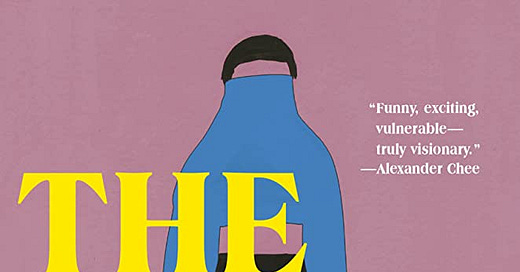The Crane Wife, CJ Hauser
⭐️⭐️⭐️⭐️
After reading CJ Hauser’s 2019 poignant essay “The Crane Wife” in The Paris Review, I was persuaded to read more of her reflective storytelling pieces on related topics. Not only did her article convey and analyze a transformative experience, but also interweaves how her emotions shifted and changed her overall perception of her tumultuous relationship. I reread and thought about this viral piece several times after my initial read. Seeing as I’ve found so much enjoyment this year from reading articles and essays, I’m confident in expressing that this is my favorite memoir with its collection of essays expanding on Hauser’s experiences behind childhood literary obsessions, romantic expectations, and emotional resonance. Though her outlooks on life and love are particularly impactful for women, Hauser’s deftness in conveying both denotation and subtext through poetic metaphors makes it easy for a diverse range of readers to discern themes and comprehend the simple yet profound messaging.
I cannot stress how much I loved the title essay, and though the other anecdotes were not as interesting as the initial essay to me, they were all still very thoughtful and captivating. The memoir’s title piece is regarding a broken engagement because of Hauser’s inability to sustain a cool-girl, low-maintenance persona, but the rest of the life chronicle essays are about all aspects of the human condition and interpersonal connections, chapters also delving into Hauser’s experiences with intimacy, grief, friendship, etc. This literature creative is incredibly astute in her observations and life lessons, yet candidly honest by expanding upon her hyper-specific stories beyond the initial, personal application. Her stories were able to make me feel as though I was reading a carefully curated diary inspired me to begin reading and writing pieces of my own. Other than “The Crane Wife,” my favorite essays were “Hepburn Qua Hepburn” and “The Fox Farm” both standing out for juxtaposing the societal expectations behind love with a lost woman finding her identity and understanding what home truly means.
I saw parts of myself in all her stories and pondered further beyond what Hauser may have intended to convey. I’m most in love with the concept of love by learning about love and growth by learning about growth. CJ Hauser perfectly encapsulates the feelings of my multicultural identity with being a woman in the modern age, and though this book will best resonate with young women, everyone from angsty teenagers and eldest daughters to self-aware fathers and single professionals should read this to understand the thought processes behind identity formation and the concept of trying. I am excited to give this a reread in the future to fully grasp other concepts Hauser outlined that seemed too mature for the current life experiences I’ve had.
If you liked “The Crane Wife,” check out the following:
The Husband Stitch, Carmen Maria Machado
Harbor, Clairo
On Self Respect, Joan Didion
Stay up to date with what I’m reading on StoryGraph, talk soon! 💌 pk




